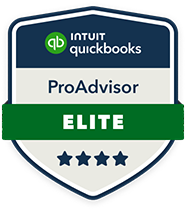IRS issues additional PPP deductibility guidance with safe harbor
While it may not be the guidance that some borrowers were hoping for, the IRS released Rev. Rul. 2020-27, which holds that taxpayers should not deduct PPP funded expenses in the year the expense was paid or incurred regardless of whether the taxpayer has sought forgiveness on the loan. In addition, the IRS issued Rev. Proc. 2020-51, which provides flexibility on how taxpayers that are denied PPP forgiveness or forego PPP forgiveness can deduct PPP funded expenses.
Under the revenue ruling guidance, PPP borrowers obtained PPP loans with the expectation of reimbursement. In other contexts, this expectation of reimbursement is sufficient enough to disallow a deduction, and the revenue ruling holds this logic is similar for PPP expenses. For example, a law firm advancing funds to clients to be repaid upon a successful outcome has been denied the ability to claim a deduction for the expenses paid with the advance as the advances really operate as loans. Another example is when an expense is paid or incurred for which the taxpayer has received prior authorization to incur such expense.
In addition, the ruling holds that PPP expenses would also be considered nondeductible as a result of an allocation to tax-exempt income. The Service states it does not matter whether loan forgiveness is obtained prior to year-end as expenses are allocable to tax-exempt income regardless of whether such tax-exempt income is received or not.
The above ruling will have a particularly unwelcome effect on taxpayers who claim an R&D credit. Losing the ability to deduct a research expense (because of PPP loan forgiveness) means that the expenditures will not be eligible to be treated as a section 174 expense or included into an R&D credit claim. There was optimism that forgiveness in a subsequent year might allow such a deduction and R&D credit claim in the current tax year, but Rev. Rul. 2020-27 makes it clear that is not the case.
Perhaps surprising to some PPP borrowers is that the IRS does not distinguish its guidance based upon the size of the loan. As many borrowers are acutely aware, SBA is starting to issue requests to complete a loan necessity questionnaire, which is causing concern with borrowers due to the nature of questions being asked.
The IRS also released a revenue procedure which provides a safe harbor as to how a PPP borrower is to recover a disallowed deduction. Under this safe harbor, a PPP borrower that has its loan forgiveness denied, in whole or in part, or forgoes seeking loan forgiveness can recover the deduction as follows:
- On the 2020, taxable year timely filed (including extensions) original income tax return.
- Through an amended 2020 taxable year income tax return or AAR adjustment, as applicable.
- On the income tax return in a year subsequent to the 2020 taxable year.
A statement is required for the safe harbor should a borrower need to avail itself of the revenue procedure.
Overall, the nondeductibility of expenses paid with PPP forgiven funds is a controversial subject as many feel Congress intended the expenses to be deductible. As borrowers wait for Congressional action to fix the deductibility issue, at least there is now authoritative guidance for borrowers to rely upon as to the timing of nondeductibility.
This article was written by Christian Wood, Ryan Corcoran and originally appeared on 2020-11-18.
2022 RSM US LLP. All rights reserved.
https://rsmus.com/insights/tax-alerts/2020/irs-issues-additional-ppp-deductibility-guidance-with-safe-harbo.html
The information contained herein is general in nature and based on authorities that are subject to change. RSM US LLP guarantees neither the accuracy nor completeness of any information and is not responsible for any errors or omissions, or for results obtained by others as a result of reliance upon such information. RSM US LLP assumes no obligation to inform the reader of any changes in tax laws or other factors that could affect information contained herein. This publication does not, and is not intended to, provide legal, tax or accounting advice, and readers should consult their tax advisors concerning the application of tax laws to their particular situations. This analysis is not tax advice and is not intended or written to be used, and cannot be used, for purposes of avoiding tax penalties that may be imposed on any taxpayer.
RSM US Alliance provides its members with access to resources of RSM US LLP. RSM US Alliance member firms are separate and independent businesses and legal entities that are responsible for their own acts and omissions, and each are separate and independent from RSM US LLP. RSM US LLP is the U.S. member firm of RSM International, a global network of independent audit, tax, and consulting firms. Members of RSM US Alliance have access to RSM International resources through RSM US LLP but are not member firms of RSM International. Visit rsmus.com/aboutus for more information regarding RSM US LLP and RSM International. The RSM(tm) brandmark is used under license by RSM US LLP. RSM US Alliance products and services are proprietary to RSM US LLP.

At Keegan Linscott & Associates, our people are our greatest asset. We embody a commitment to our people in our culture of openness, cooperation, teamwork and community service. Keegan Linscott provides exceptional training, coaching, a positive work/life balance and opportunities for personal and professional development. Keegan Linscott’s dedicated team of multi-faceted professionals stand ready to provide the highest quality of audit, tax and consulting services to our valued clients and community. We are leaders in our practice areas and are uniquely qualified to provide innovative and practical solutions.
As a group of practitioners working together, the professionals at Keegan Linscott are able to specialize in specific areas of accounting, audit, taxation, and consulting – a key advantage which allows us to offer a higher standard of service quality.
For more information on how Keegan Linscott & Associates, PC can assist you, please call (520) 884-0176.




